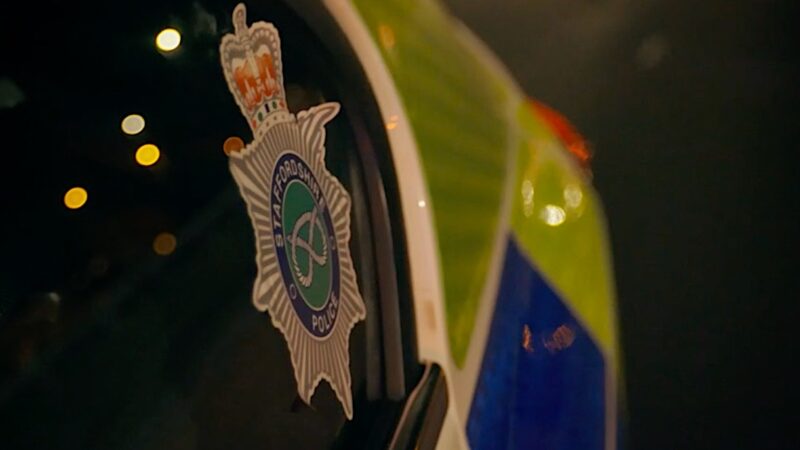
Many of us sat down on Tuesday night to watch the first episode of Cops Like Us, a three-part documentary on BBC2 following a group of Staffordshire officers going about their duties, responding to incidents and talking about the job. There is no shortage of ‘fly on the wall’ documentaries and TV shows following police officers as they chase the bad guys and deal with the day-to-day fight against crime. But this was more than just another bunch of cops on camera. What was so different?
For me, the programme covered familiar territory – literally. As a criminologist based in Staffordshire for the last 18 years, as former chair of the community safety partnership that covers some of the areas featured in the programme, and as a local councillor for the last nine years, much of the picture was all too familiar. A picture of too few officers having to do far too much.
Staffordshire Police are representative of far too many forces across the country. It shows all of the building blocks of contemporary policing after ten years of austerity: significant reductions in the number of police officers in the last decade (27% down in Staffordshire); cuts in essential police staff; an ageing force where a large number of officers are approaching retirement age in the next few years; the rush to cope with cuts by closing police stations; withdrawing a visible police presence from local communities.
Staffordshire has felt more than its fair share of Tory cuts in policing, but that is not unique. Staffordshire is emblematic of the crisis in policing that has emerged over the last decade – a crisis in numbers, a crisis in the visibility of policing in our communities, a crisis in roles as the police are increasingly pressured to deal with the fallout from the wholesale devastation of our public services, being required to do more and more with less and less.
Stoke-on-Trent also featured heavily in the programme: a collection of communities decimated by the loss of industry and years of under-investment in basic essential services, people with a long history of hard work, pride and solidarity, increasingly angry, disillusioned and disengaged. In that respect, Stoke is also emblematic of far too many communities across the Midlands and the North of England, struggling to cope in a game where the dice have been loaded against them for far too long.
But what was really different this time was the candour with which serving police officers talked about all of these challenges and why things were getting so bad. Among the officers on screen, there were many familiar faces – officers I have dealt with before, officers I have spoken to about how we can work together to try and stem the flood. Police officers are experts at maintaining a neutral professional demeanour. Once they get to know you, they will talk off the record about what they think is really going on, but those views rarely if ever break through that professional demeanour.
That changed on Tuesday night. Officer after officer sat down in front of a camera and told it like it is, showed their frustrations at what has been going on. They talked about the underfunding of schools, youth services, mental health support, drug and alcohol treatment, the dead hand of austerity. They made clear their concerns about the decline in police numbers, the closure of police stations, the expectation that they step in to cover for other essential but increasingly hollowed out public services.
This came to a head with the interview with Gareth Morgan, level-headed and highly experienced Chief Constable for Staffordshire. He had to pause his interview as he became visibly upset at discussing the situation he was dealing with. This isn’t normal territory for down-to-earth coppers. Something is changing. Like us, they are now publicly calling out the impacts of austerity; like us, they are speaking out about police numbers; like us they are clear things have to change. This really was ‘cops like us’.




More from LabourList
Letters to the Editor – week ending 15th February 2026
‘Labour council candidates – it’s tough, but all is not lost’
‘Labour won’t stop the far right by changing leaders — only by proving what the left can deliver’